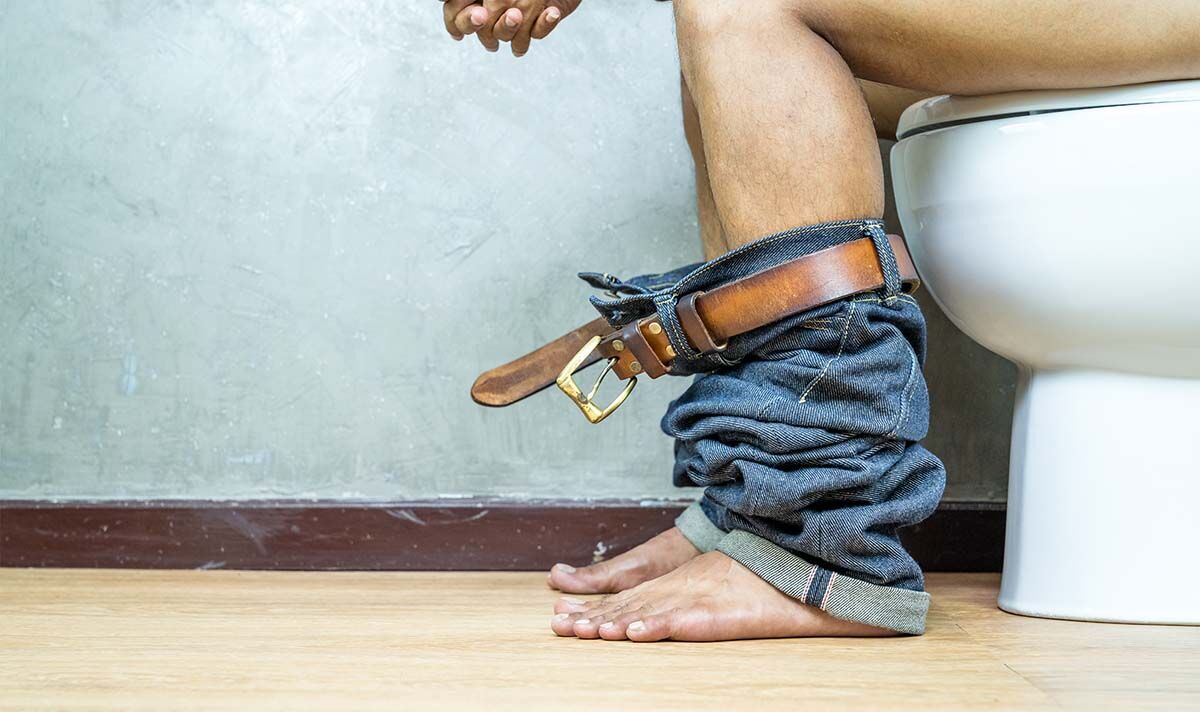Prostate cancer: Doctor outlines symptoms you might experience
We use your sign-up to provide content in ways you’ve consented to and to improve our understanding of you. This may include adverts from us and 3rd parties based on our understanding. You can unsubscribe at any time. More info
Prostate cancer describes a daunting condition that begins in a walnut-sized gland in your pelvis. Just like all forms of cancer, early detection significantly improves your chances of an effective treatment. This makes symptom awareness front and centre. Fortunately, haematuria could help ring alarm bells.
Symptoms of prostate cancer usually crop up once the prostate is large enough to affect the tube that carries urine from the bladder out of your penis, known as the urethra.
This position means that prostate cancer often triggers signs when you go to the loo for a number one.
One of the warning signs of the deadly condition is haematuria, according to the Mayo Clinic.
Haematuria is a medical term for the presence of blood in your pee that can be visible to the naked eye or picked up by a urine test.
READ MORE: Menorrhagia is one of the most ‘common signs’ of cancer – ‘Seek appointment with your GP’

The NHS explains that while blood in your pee might not be caused by anything serious, it’s important to have it checked out by a GP.
The health service recommends asking for an “urgent” appointment or calling 111.
Furthermore, research, published in the journal ISRN Surgery, found that prostate cancer spurred on haematuria in 60 percent of patients.
The research team looked at 81 men hospitalised with bloody urine between 1991 and 2011.
Around 41 patients with this red flag sign were found to have prostate cancer.
Other problems linked to this symptom included bladder cancer or urinary tract infection.
Fortunately, haematuria isn’t the only tell-tale sign that can alert you of prostate cancer.
According to the Mayo Clinic, the main symptoms to look out for include:
- Trouble urinating
- Decreased force in the stream of urine
- Blood in the urine
- Blood in the semen
- Bone pain
- Losing weight without trying
- Erectile dysfunction.
READ MORE: The popular ‘anti-inflammatory’ spice that could help reduce visceral fat in ‘weeks’

The NHS states: “These symptoms should not be ignored, but they do not mean you have prostate cancer.
“It’s more likely they’re caused by something else, such as prostate enlargement.”
Benign prostate enlargement, or BPE for short, describes a condition that can affect how you pee.
Common in men aged over 50, BPE isn’t usually a serious threat to health.
However, you should always get any unusual changes and symptoms checked out by your doctor.

How to prevent prostate cancer
While there’s no “sure way” to prevent prostate cancer, with research often providing conflicting advice, doctors tend to recommend a healthy lifestyle, the Mayo Clinic explains.
When it comes to your diet, the health portal advises opting for a low-fat diet packed with fruits and vegetables.
You might also want to consider cutting back on dairy products, as some research papers noticed that men who ate the most dairy products had the highest risk of prostate cancer.
Other interventions like exercising and maintaining a healthy weight could also help.
Source: Read Full Article
